The slaughter of animals in Brazil feeds a monstrous chain of legal, environmental, sanitary, ethical and illicit uses./amp
HUMAN SYNTHESIS
email: humansynthesis0@gmail.com

The slaughter of animals in Brazil feeds a monstrous chain of legal, environmental, sanitary, ethical and illicit uses.
Special interview with Frank Alarcón
IHU ONLINE MAGAZINE
By: By João Vitor Santos | Patricia Fachin Edition | March 04, 2018
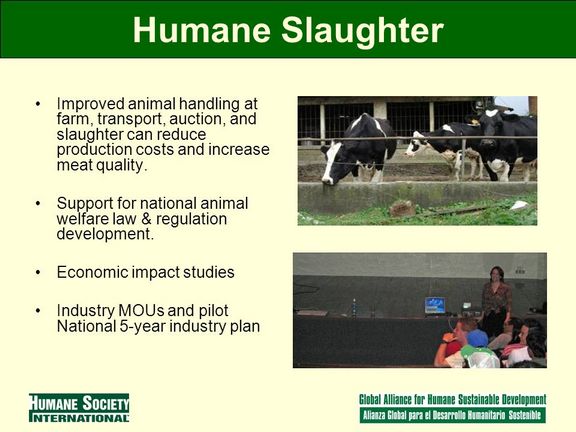
For more than five years, Brazil has been exporting live animals for slaughter, and the peak of this practice occurred between 2013 and 2014, "when exports of livestock totalled 1.3 million animals shipped for sale," says biologist Frank Alarcón in the interview below, granted by e-mail to IHU On-Line. According to him, according to data from the Ministry of Industry, Commerce and Services , last year "the export of live cattle reached a total of 400.66 thousand animals exported - a volume 41.9% higher than that registered in the year 2016 "And the main buyers of Brazilian cattle were Turkey (55.2% of the total), Egypt (13.29%), Lebanon(9.6 percent) and Jordan (9.5 percent).
Although this percentage may seem high, Alarcón says it is small compared to the percentage of slaughtered cattle to sustain domestic consumption. "For strategic reasons aimed at conquering the Southeast Asian market and the world's orphan demand for slaughter animals from Australia, the largest exporter of live animals on the planet, the export of live animals from Brazil is characterized by a small percentage of the total of animals produced for execution throughout the national territory. In Brazil, about 7.6 million cattle are killed every year - something like one animal per second, "he says.
In the interview below, the biologist also draws attention to the conditions of "maltreatment" to which these animals are subjected during the export process. "The transportation of animals (whether by road or sea) is intrinsically linked to the practice of ill-treatment. Animals are transported in single- or double-decker trucks, packed with animals (for transportation, number of vehicles and fuel) on strenuous journeys hundreds of miles from their quarantine or breeding ground, standing without being able to eat or ingesting fluids properly, "he reports.
The supervision of this process is also carried out in an inadequate and obscure way. "As widely publicized in 2017, the Federal Police demonstrated a gigantic scheme of issuing false health certificates for Brazil's main slaughterhouses, which did not involve the effective supervision of the materials and facilities, "he recalls. And he warns: "The slaughter both institutionalized and that carried out clandestinely throughout the country feeds an entire monstrous chain of legal, environmental, sanitary and, above all, ethical unlawfulness. (...)
While refrigerators and their holdings are involved in the obscure financing of agents and parliamentary seats of the Public Power, of processes involving money laundering and foreign exchange, of transporting drugs through the road network or through runways on gigantic farms , for the destruction and deforestation of the Cerrado and Amazonian areas, the death of environmentalists and indigenous representatives, the practice of labor regimes analogous to slavery, the contamination of water and groundwater with antibiotics and by-products of animal slaughter - to name just a few factors already widely recorded by journalistic vehicles -, the way animals are treated and killed is, for civil society, an aspect of low interest. "
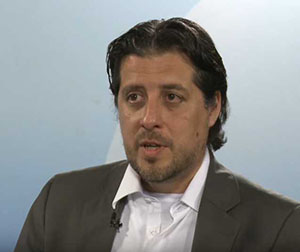
Frank Alarcón | Photo: Personal Archive
Frank Alarcón holds a bachelor's degree in Biological Sciences from the State University of Campinas - Unicamp, a Master's Degree in Physics and Chemistry from the University of São Paulo - USP and a PhD in Bioethics and Applied Ethics from the Universidade Federal Fluminense - UFF. He is a biologist at the Luisa Mell Institute and coordinator of Cruelty-Free International in Brazil. He is also a spokesman for the ANIMALS party, the first petty party in Latin America. He has been a vegan, animal rights activist for more than three decades.
Check the interview.
IHU On-Line - In February of this year, a ship loaded with live oxen that were going to Turkey was retained by Justice in the Port of Santos. The episode revealed the ill-treatment to which these animals are exposed for export. Is Santos' case an isolated factor is it recurrent in Brazil?
Frank Alarcón - The export by sea of live animals for slaughter originated in Brazil is a practice that has been going on for more than five years. Its peak occurred recently between 2013 and 2014 when exports of standing cattle - popular terminology given for this operation - totalled 1.3 million animals shipped for sale. During this period, the main destination of purchase was Venezuela.
The process of embarking and exporting these animals traditionally occurs in three regions and ports of the country: in Barcarena in the northeast of Pará , in the Port of Rio Grande in Rio Grande do Sul and more recently, after an interval of twenty years in which it was not done this operation, in the ports of São Sebastião and Santos in the state of São Paulo . The distribution of these shipping and exporting regions aims to attend to the movement of the animals by land from their breeding centres to the aforementioned maritime departure points.
In October of 2015, during the CPI of the Animal Maltreatment installed in the Chamber of Deputies, the president of this commission, federal deputy Ricardo Izar , personally went to the region of the port of Vila do Conde in Pará to verify the immense impacts caused by the shipwreck of the " Haidar " vessel with 5,000 confined animals - all of them drowned in the accident. In 2017, according to data from the Ministry of Industry, Commerce and Services, the export of live cattle reached a total of 400,66 thousand exported animals - a volume 41.9% higher than that recorded in 2016. In 2017, the main buyers were Turkey(55.2% of the total), Egypt (13.29%), Lebanon (9.6%) and Jordan (9.5%).
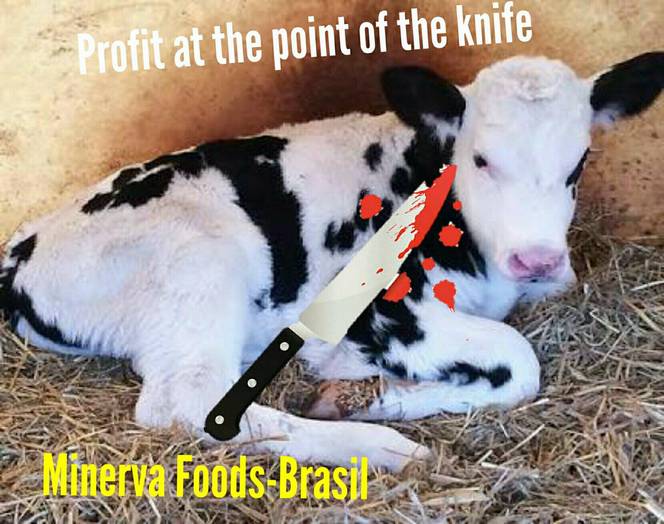
IHU On-Line - Why Brazil bets on the export of live animals? What are the limits of this business?
Exporting live animals serves markets and very specific segments, which seek to acquire cheap meat and belonging to certain races
Frank Alarcón - For strategic reasons aimed at conquering the Southeast Asian market and the world's orphan demand for slaughter animals from Australia, the world's largest exporter of live animals. The export of live animals from Brazil is characterized by being a small percentage of the total of animals produced for execution in the whole national territory. In Brazil, about 7.6 million cattle are killed each year - something like one animal per second. The slaughter of other animals such as poultry, pigs, horses, sheep, sheep, fish, etc. are not included in this calculation. Added to all these numbers, the numbers involving vulnerable deaths are scary.
THE PROUD FAZENDA OWNER
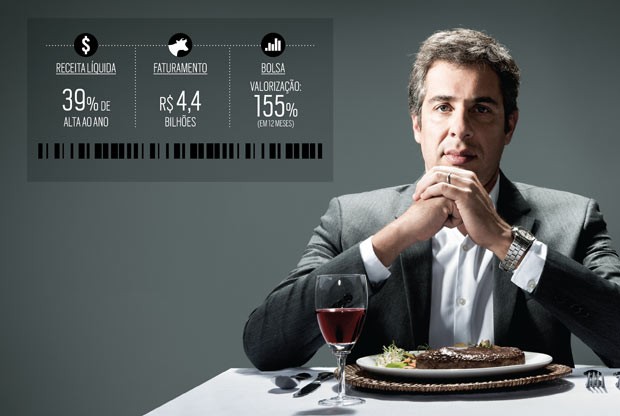
QUEIROZ, PARTNER AND PRESIDENT OF MINERVA, BET ON TECHNOLOGY, SYNERGIES AND PARTNERSHIPS TO GROW. BUT DOES NOT GIVE UP THE FOCUS: "WE ARE PROUD TO BE PRODUCERS OF COMMODITY" (PHOTO: GABRIEL RINALDI)
Exporting live animals serves very specific markets and segments, which seek to purchase cheap meat from certain breeds (depending on the meat characteristics of these animals), where buyers do not have the necessary infrastructure and logistics to store and distribute chilled and frozen meat in its territory, where there is the buyer's desire to recompose its commercial herd of breeding and slaughter for different reasons, where the buyer wishes that the slaughter be carried out near the place where the meat extracted from the animal will be sold and consumed, or in situations in which that the slaughter must comply with specific liturgical procedures of religious character ( Halal slaughter or Kosher slaughter, for example).
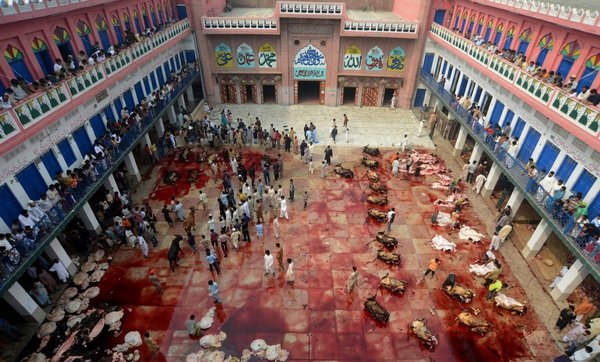
"Brazilian Fazenda owners!! Having proudly raised your cattle in green fields, you export them to a cruel future in a foreign land. How can you sleep at night???" PROFIT AT THE POINT OF THE KNIFE
This is a business that is limited by operation logistics: creation, transportation (road and sea), inspection, subsidy or low taxation of the federal government process. To the extent that these costs are reduced or facilitated by the government, there are no limits to the growth of this sector that greatly pleases animal producers who now have another possibility of trading confined animals and bred for a future murder.
IHU On-Line - How to ensure that animals that are exported live are not victims of maltreatment? How is this inspection done today and how do you evaluate this inspection work?
Frank Alarcón - There is no way to do it since the transport of animals(whether road or sea) is intrinsically linked to the practice of ill-treatment. Animals are transported in single- or double-decker trucks loaded with animals (for transportation, number of vehicles and fuel) on strenuous journeys hundreds of miles from their quarantine or breeding ground, standing without being able to eat or ingesting fluids adequately, subject to various accidents depending on the speed reached by the trucks, braking, curves, roads with structural problems etc, exposed to their own feces and urine all the way.
The practice of boarding these animals in transport vehicles is commonly done under a very stressful regime for animals
The practice of boarding these animals in the transport vehicles is usually done under a regime of great stress for the animals caused by the Cowboys, often equipped with equipment called electric pianos, which are used to deliver shocks to the animals to enter the vehicles, or do not lie on their floor - which reduces the space of other standing animals and encourages others to fall on one another, potentially causing fractures and wounds, which, in the eyes of the seller and the buyer, damages the Product.
The inspections done in the most inadequate and obscure way possible - anecdotally called 'Sanitary Finding' - since it involves all those interested in maintaining this process: the salesmen, the veterinary professionals and the contracted zootechnicians - whether by the buyer, seller or government agencies interested in the maintenance of this business that generates revenues and taxes - the operators of the ports, and the tax authorities of the countries that receive the animals - processes that are not accessible to any independent and transparent civil society audit.
As widely publicized in 2017, the Federal Police demonstrated a gigantic scheme of issuing fake sanitary certificates for Brazil's main slaughterhouses, which did not involve the effective inspection of materials and facilities. This investigation became known as " Weak Meat Operation ". It is not to be expected that inspection of transport of live animals for slaughter abroad will be different. In fact, the federal judicial inspection carried out by the veterinarian who joined the Ship Nada to inspect the more than 25 thousand animals shipped is supported by a long video record and photos. The Ministry of Agriculture, Livestock and Supply - Maphas issued an adverse opinion claiming excellent containment conditions. In the words of the director of the department of animal health of the Map, Guilherme Marques, "the animals [are being monitored] with daily reports of the commander and are great."
IHU On-Line - What is the reality of the transport of live animals inside Brazil, specially made by trucks on highways?
Frank Alarcón - Animals are raised for slaughter in multiple regions of the country. The process of forwarding these animals, whether to the slaughterhouses, to other breeding sites, or to ports for export, is done mostly by the road network. The precariousness of this vehicular communication network throughout the country is widely known. In addition to the maltreatment inherent in the transport of animals themselves - confinement with restriction of movement, exposure to unhealthiness and deliberate aggression - it is not uncommon for the same vehicles that transport animals under these conditions to be precariously inspected. This obscurity also favours the transportation of other illicit products that fuel the drug trafficking market. In a recent inspection carried out by federal Police on February 21 and 22, 2018, in BR-153, between Araporã and Uberlândia, approximately 400 kilos of cocaine and base paste was found in false bottoms of cattle trucks or hidden in animal faeces there deliberately accumulated.
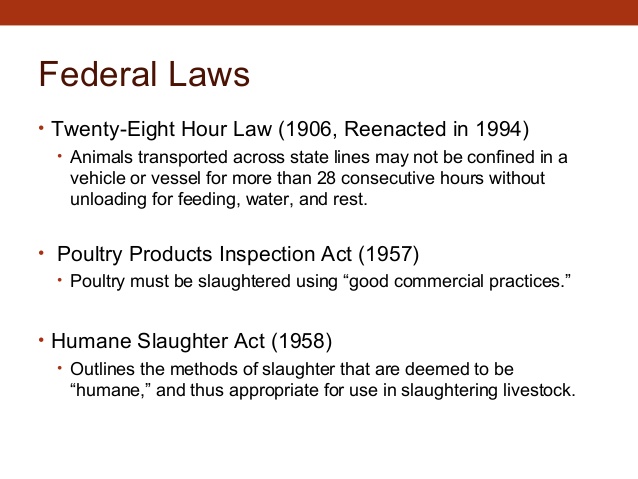
IHU On-Line - Animal rights organizations are always questioning the ways of slaughtering in the country. How much progress has been made in legislation or inspection so that the slaughter of animals for human consumption is not synonymous with even more sacrifice?
The complete lack of transparency, not only of the slaughter itself but of the entire production chain, is an evident point of this whole process
Frank Alarcón - There was no breakthrough. Even if there were laws in this sense, they are of little use if enforcement is non-existent or corrupt. Both institutionalized and clandestine slaughter all over the country feeds a monstrous chain of legal, environmental, sanitary and, above all, ethical illicit. The complete lack of transparency, not only of the slaughter itself but also of the whole production chain, is an obvious point of the whole process.
However, while refrigerators and their holdings are involved in the obscure financing of agents and parliamentary seats of the Public Power, of processes involving money laundering and foreign exchange, of drug transportationby the highway network or by means of airstrips in gigantic farms, by the destruction and deforestation of the Cerrado and Amazonian areas, the death of environmentalists and indigenous representatives, the practice of labor regimes analogous to slavery, the contamination of water and groundwater with antibiotics and by-products of animal slaughter - to name just a few factors already widely recorded by journalistic vehicles -, the way animals are treated and killed is, for civil society, an aspect of low interest.
Even because a significant part of the population prefers to remain in their comfort zone, consuming pieces of corpses three times a day, deliberately ignoring what is behind the chain of exploitation and death of vulnerable.
Each real spent on a slice of meat, inlaid, or in a box of milk or eggs, finances the whole chain, its business and the participants in the crimes committed. Refrigerators (formerly explicitly called 'slaughterhouses' - the name says it all) are hidden structures of society. And she somehow helps it to stay that way since consciousness hurts. The main and undisputed point of all practice of animal production and slaughter is that there is no sure way to kill the one who does not want to die. And this is the case of the millions of animals that are killed every second to feed the gustatory caprice of millions of Brazilians.
IHU On-Line - In addition to slaughtering, breeding animals for food production can also be done under ill-treatment conditions. What is the reality of Brazil today and how do we prevent such maltreatment?
Animals are not things. They are beings endowed with complex world-view, self-interests, deep subjectivity and individuality, inaccessible to our present scientific knowledge
Tweet
Frank Alarcón - It is necessary to first understand that animals cannot be seen or treated as if they were an ingredient, an object, a product, a thing, and thus as if they were a food. The fact that historically or culturally this has been so one day, in no way qualifies the practice today as stony or immutable. A couple of decades ago, today's controversial practices were something everyday within the popular imaginary and visible in everyday society. It is clear that practices and understandings must change as there are more clarification and transparency about what certain actions involve. Hence the fundamental need for transparency in dialogue and exposing the backstage of actions that put vulnerable as objects.
In order for us to avoid the occurrence and perpetuation of ill-treatment, it is necessary first of all to recognize that animals are non-human individuals endowed with a cognitive and psychic complexity in no less than different categories of our own species. To the extent that we accept and apply to our daily lives what portions of the scientific community have already recognized in view of the vast amount of empirical evidence available, animal abuse will be considered absurd and illegal - occur in any form that may be imagined.
IHU On-Line - What are the limits of so-called agribusiness?
Frank Alarcón -The limits of the causation of damage to the neighbour, considered here all the sentient personages - human and nonhuman - involved in this set of consequences. Just as families and entrepreneurs want to produce revenue and achieve with the products and services that they may find necessary, it is not absolutely reasonable that the dignity and physical and mental integrity of the individual (human or nonhuman) and the collective environment in which we are all inserted, are ignored in the calculation of the moral relevance of a given action - in this case, agribusiness practices.
The classic and shallow cantilena of generation of jobs, tributes and economic benefits cannot be imposed to the fundamental and necessary manifestation of respect to the other. Exploring the trade balance of a country or a community can not and should not be something that overlaps with the most basic ethical principles that thousands of years of civilizational process have made us understand, that is, respect for the other, the practice of justice of collective and social character, the protection of the vulnerable independent of the species and the expansion of the circle of moral consideration to all that is individual of this planetary biological collective.
IHU On-Line - How to design an agriculture and livestock that are not synonymous with environmental degradation and maltreatment, but which are efficient in food production?
There is no way for a Livestock to have some type of conciliation with the absence of mistreatment or non-causation of diversified damages to the environment
Frank Alarcón - There is no way for a Livestock to have some kind of conciliation with the absence of mistreatment or non-causation of diversified damages to the environment. To the extent that animal productionis dependent on large volume of animals for profitability (and with this large areas of confinement) and consumption of various inputs to increase animal protein or lipid mass and avoid diseases (such as antibiotics, hormones, vaccines) or extract from these animals derived (eggs, milk, leather, wool, etc.) of commercial interest, the inherent logistics of manipulating large numbers of individuals is intrinsically linked to the generation of waste that needs to be neutralized or converted (feces, urine and metabolic gases and discards and animals). Animal production, therefore, is inherently linked to the subjugation of animals to varying degrees of cruelty - all unacceptable when considering the volume of their consumer market.
Regarding Agriculture, which is currently heavily dependent on broad-spectrum pesticides and environmental hazards, it is necessary to migrate to models similar to Agroecology or Synthetic Agriculture. These are integrative planting and harvesting practices that aim to take advantage of the natural characteristics of the planting regions and the different commercially interesting plant species, in order to enhance the development of their crops as they are cultivated in a harmonized way. For a planet with more than 7.6 billion commensal humans, more important than volume of production is the quality of production, always technologically supported, and the fair distribution and sale of the surplus production that is used, in tons, to feed the animals who are killed for a human whim.
IHU On-Line - What are the biggest challenges for those who want to make conscious consumption in Brazil? And how to overcome these challenges?
Frank Alarcón -Understanding conscious consumption as one that produces the minimum environmental, sanitary and social impact, integrated with ethically acceptable practices, we should consider Strict Vegetarianism as the best and most urgent solution possible in the field of food. In addition to the food field, veganism , which can be understood as a way of life that seeks to exclude, as far as possible and practicable, all forms of exploitation and cruelty against animals whether for the production of food, clothing, cosmetics, entertainment and any other purpose, should be put into practice.
These practices dialogue primarily with an ethical clarification about the importance of considering the interests of the other in our way of acting and deciding. In addition, in a collateral way, veganism dialogues positively with current debates about climate change, depletion of resources, production of polluting waste, more equitable distribution of income, and the recovery of environmentally and socially more balanced practices. As is widely known, consuming vegetables, besides being easy to join in terms of purchasing products - just go to the market or the supermarket to have access to a large repertoire of vegetable ingredients - involves reduced monetary expenditure. Science shows with ample volume of data such as vegetarianism is clinically healthy and recommendable, making nothing a strict vegetarian weaker in nutritional terms than an Olympic athlete.
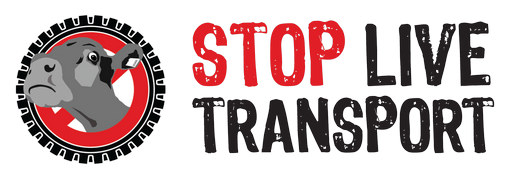
Animals are not things. They are beings endowed with complex worldviews, self-interests, deep subjectivity and individuality, inaccessible to our present scientific knowledge
On the other hand, the consumer needs to be aware that each time he chooses which service, product or company he destines his money to, it indicates to entrepreneurs that this business must continue to feed the supermarket shelves. Thus, conscious consumption is one where the consumer has an active and determining role in what is produced and offered for sale. With the current approach of the consumer of the one that produces, through social networks and the internet, there is a concrete possibility of awareness and collection about the companies that operate in the market.
IHU On-Line - Do you want to add something?
Frank Alarcón - Animals they are not things. They are beings endowed with complex world-view, self-interests, deep subjectivity and individuality, inaccessible to our present scientific knowledge. The " Cambridge Declaration on Animal Consciousness " made public in July 2012 makes it clear that "(...) the weight of evidence indicates that humans are not alone in possessing the neurological substrates that generate consciousness. Non-human animals, including all mammals and birds, and many other creatures, including octopuses, also possess these neurological substrates. " Ignoring this and acting contrary to this and so much other information is manifesting inconsistency in the daily discourse of many people for a world of peace, justice, respect, acceptance and non-violence. Consistency is the best business card.
Read more details from the archive
WHO and WHAT is behind it all ? : >
The bottom line is for the people to regain their original, moral principles, which have intentionally been watered out over the past generations by our press, TV, and other media owned by the Illuminati/Bilderberger Group, corrupting our morals by making misbehaviour acceptable to our society. Only in this way shall we conquer this oncoming wave of evil.
Commentary:
The enormous expanse of corruption in this industry which has been going on for at least a decade could be even greater than ´Lava Jato´. The industry overflows with protective laws, which are never adhered to, and rarely inspected. And if so, the inspectors are also subject to bribery. This continues, as they do not wish to lose their lucrative positions.
While refrigerating plants and their holdings are involved in the obscure financing of agents and parliamentary seats of the Public Power, of processes involving money laundering and foreign exchange, of drug transportationby the highway network or by means of airstrips in gigantic farms, by the destruction and deforestation of the Cerrado and Amazonian areas, the death of environmentalists and indigenous representatives, the practice of labor regimes analogous to slavery, the contamination of water and groundwater with antibiotics and by-products of animal slaughter - to name just a few factors already widely recorded by journalistic vehicles -, the way animals are treated and killed is, for civil society, an aspect of low interest.
Administrator
HUMAN SYNTHESIS
All articles contained in HUMAN-SYNTHESIS are freely available and collected from the Internet. The interpretation of the contents is left to the readers and do not necessarily represent the views of the Administrator.